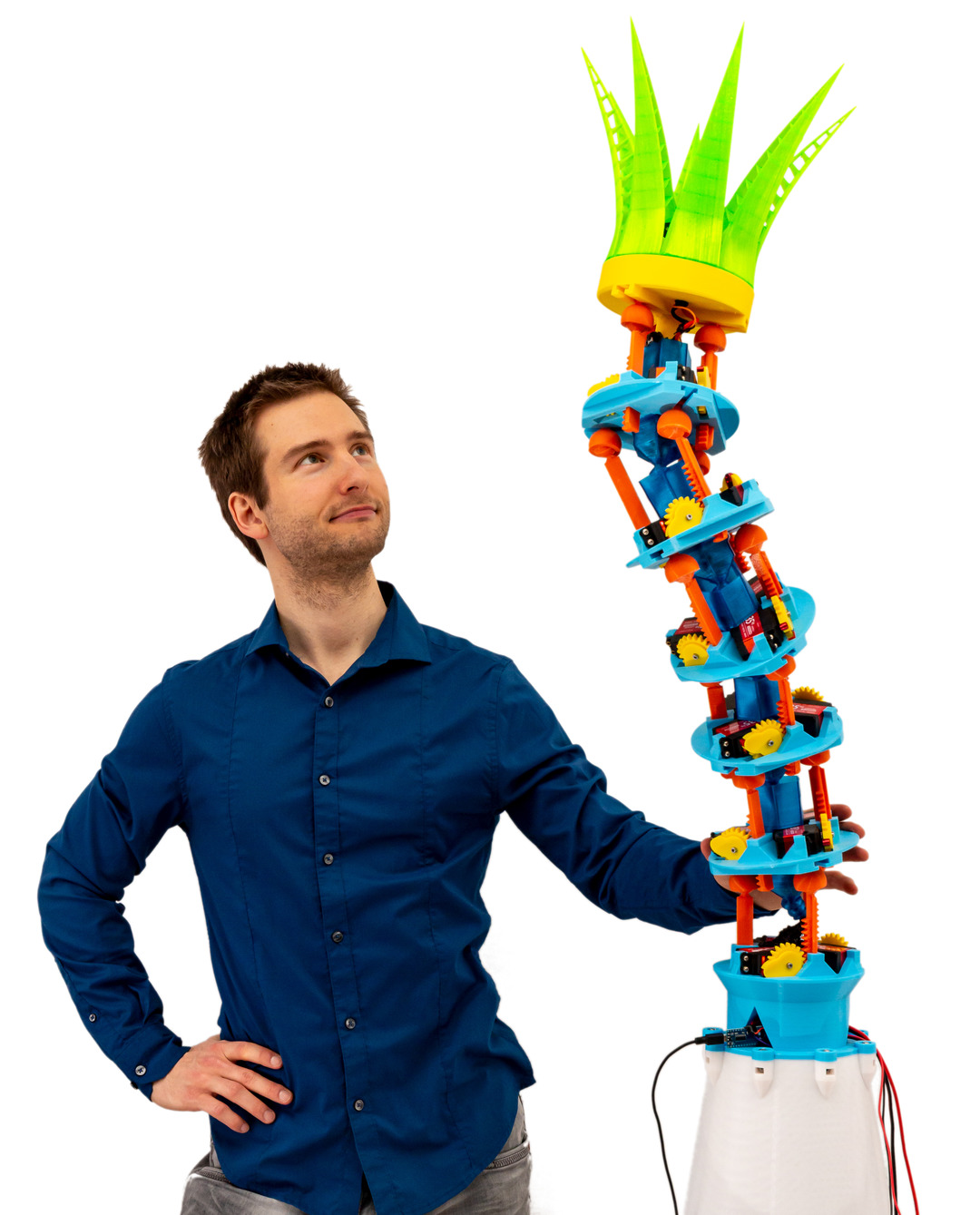Manuel
Traub
Computer Scientist / AI Researcher

Computer Scientist / AI Researcher


My name is Manuel Traub. I am a 4th-year Ph.D. student in the Cognitive Modeling group at Eberhard Karls University of Tuebingen and a scholar of the International Max Planck Research School for Intelligent Systems.
During my master's, I specialized in AI research, particularly in Spiking Neural Networks (SNN). My master's thesis involved controlling a many-joint robotic arm using an SNN, where I designed and built the arm using a 3D printer.
Currently, my research focuses on developing advanced object reasoning systems inspired by the human brain. I have been working on the LOCation and Identity tracking system (Loci) and its variants, aiming to improve object tracking, interaction analysis, and scene segmentation. These models process separate, slot-wise encodings of 'what' and 'where' to help better understand and anticipate object motion and interactions.
Additionally, these models can learn object permanence, directional inertia, and object solidity from observation alone. By segmenting scenes into interpretable components without requiring predefined background information, they have shown improved video decomposition performance in benchmark datasets. I hope that these advances will contribute to more effective planning and reasoning on conceptual levels.
My other interests include 3D printing and robotics. In my free time, I am a passionate strength athlete and outdoor enthusiast.
Traub, Manuel, Frederic Becker, Adrian Sauter, Sebastian Otte and Martin V. Butz. Loci-Segmented: Improving Scene Segmentation Learning. arXiv preprint arXiv:2310.10410 (2023). (submitted to ICANN)
Traub, Manuel, Frederic Becker, Sebastian Otte and Martin V. Butz. Looping LOCI: Developing Object Permanence from Videos via Latent Imaginations. arXiv preprint arXiv:2310.10372 (2023). (submitted to ICANN)
Manuel Traub, Sebastian Otte, Tobias Menge, Matthias Karlbauer, Jannik Thuemmel and Martin V. Butz. Learning what and where: Disentangling location and identity tracking without supervision. International Conference on Learning Representations (ICLR). 2023.
M. Traub, M. V. Butz, R. Legenstein, and S. Otte. Dynamic action inference with recurrent spiking neural networks Artificial Neural Networks and Machine Learning – ICANN 2021 pp 233–244.
M. Traub, R. Legenstein, and S. Otte. Many-Joint Robot Arm Control with Recurrent Spiking Neural Networks 2021 IEEE/RSJ International Conference on Intelligent Robots and Systems (IROS). IEEE, 2021.
M. Traub, M. V. Butz, R. H. Baayen, and S. Otte. Learning precise spike timings with eligibility traces. Artificial Neural Networks and Machine Learning – ICANN 2020 pp 659–669
M. Traub. Biologically inspired action inference with recurrent spiking forward models. Master’s thesis, Eberhard Karls Universität Tübingen, 2019.
M. Traub, J. Stegmaier. Towards Automatic Embryo Staging in 3D+ T Microscopy Images using Convolutional Neural Networks and PointNets. Simulation and Synthesis in Medical Imaging – SASHIMI 2020 pp 153–163
B. Schott, M. Traub, C. Schlagenhauf, M. Takamiya, T. Antritter, A. Bartschat, K. Löffler, D. Blessing, J. C. Otte, A. Y. Kobitski, et al. Embryominer: A new framework for interactive knowledge discovery in large-scale cell tracking data of developing embryos. PLoS computational biology, 14(4):e1006128, 2018.
M. Traub. Design, implementation and evaluation of a visual interface to guide the knowledge discovery process within large biological datasets. Bachelor thesis, Karlsruher Institut für Technologie, 2016.
J. Stegmaier, B. Schott, E. Hübner, M. Traub, M. Shahid, M. Takamiya, A. Kobitski, V. Hartmann, R. Stotzka, J. van Wezel, et al. Automation strategies for large-scale 3d image analysis. at-Automatisierungstechnik, 64(7):555–566, 2016.
Github Page for the Loci models: Loci, Loci-Looped, Loci-Segmented
Link to the CAD-parts of the robot on MyMiniFactory
Source code for the paper: Many-Joint Robot Arm Control with Recurrent Spiking Neural Networks
If you have any questions, suggestions or criticism regarding my research, feel free to contact me.